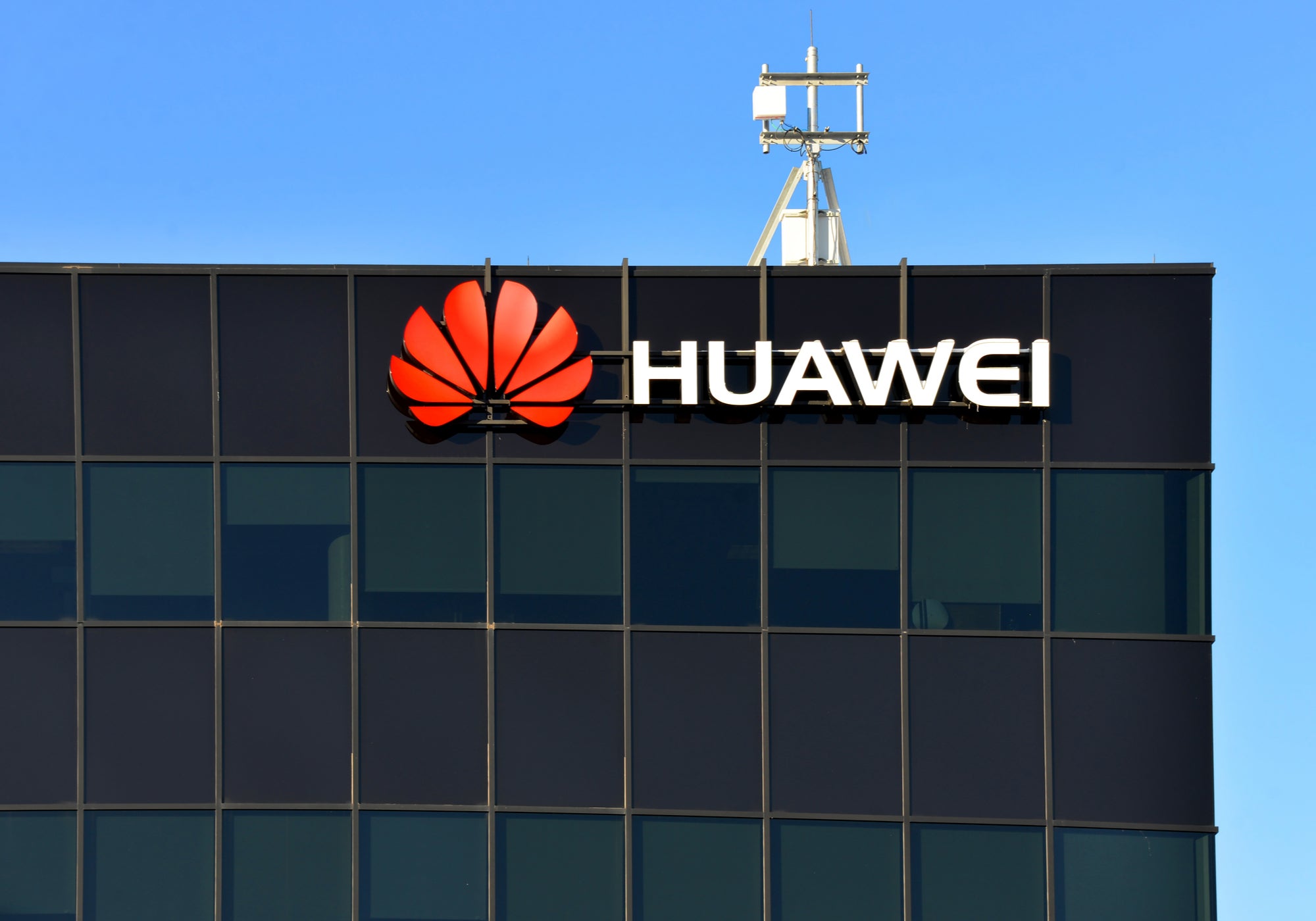
Chinese technology giant Huawei says it needs more time from the UK to assess how the latest US sanctions will affect its 5G supply chain.
In May the US announced measures designed to block Huawei’s access to the advanced microchips needed for its 5G telecommunications equipment. This has reportedly changed the National Cyber Security Centre’s (NCSC) risk assessment of Huawei’s role in the UK’s telecommunications network, with Prime Minister Boris Johnson to be briefed on the changes this week.
Senior Huawei executives said that the US sanctions would not affect the company’s ability to supply the UK’s 5G and fibre broadband network in the short term.
Victor Zhang, vice president and UK chief representative at Huawei said that the firm had “five years” of spare parts that would ensure “the UK’s existing [network] will not be impacted by the sanctions” in the short term.
He added that the US sanctions are “definitely unjustified”.
“We are working closely with our customers and partners for evaluating the long-term impact. It takes time,” he told the UK’s Science and Technology Committee’s inquiry into 5G infrastructure.

US Tariffs are shifting - will you react or anticipate?
Don’t let policy changes catch you off guard. Stay proactive with real-time data and expert analysis.
By GlobalDataJeremy Thompson, vice president of Huawei UK, told the committee that the US sanctions are “certainly not helpful” but pointed to his company’s response to previous US sanctions last year.
“We were put on the entities list last May, we communicated with our customers and the UK government saying ‘give us a few weeks and we’ll work out what this means, but we feel confident we’ll find mitigation for that’,” he said. “After six months or so we were able to confirm that mitigations were in place and here we are 12 months later and there has not been an interruption to supply.”
He added that Huawei was confident it could have mitigations, although “maybe not all the mitigations” in place to deal with the latest sanctions “later on this year”.
“We would just ask for time to… do the analysis, to understand the supply chain and to identify the mitigations and to share those with the UK government,” he said.
The US sanctions, which means that foreign companies will require a US license to supply American chips and chipmaking equipment to Huawei, are yet to be fully finalised by the US. More detail is expected to be published later this month.
“So in the short term, we can supply our customers,” said Thompson. “5G is not an issue in the short term. The existing network is not an issue. We just need time to evaluate what the rules mean… when the rules have been finalised, we will be able to assess what that means and come back to you as quickly as possible.”
Huawei sanctions: Changing fortunes
In January the UK gave the green light to Huawei to operate in the non-sensitive parts of the UK’s network with a market cap of 35%. But since then the political winds have changed for Huawei.
Members of the UK government have become increasingly hawkish on China following the country’s initial handling of the coronavirus pandemic, its treatment of the Uyghur Muslim population and the passing of the controversial Hong Kong security law.
Huawei executives refused to be drawn on the Huawei’s view on Hong Kong and other geopolitical topics. “As a company, we are not in a position to comment on that political agenda,” Zhang told the committee.
Thompson also dismissed allegations that Huawei could be forced by the Chinese state to build backdoors into the UK’s networks.
He said Huawei’s role was more akin to building the plumbing in a house than doors and as such would not have access to the data passing through the network.
Dr Yao Wenbing, vice president business development and partnerships at Huawei UK added that there is “no evidence” that Huawei technology would make the UK more vulnerable to a cyberattack.
The NCSC, which has been monitoring Huawei technology for more than a decade at the Huawei Cyber Security Evaluation Centre in Banbury, has found no evidence of malfeasance but has pointed out sloppy engineering in previous reports.
The US, which has intensely lobbied the UK to ban Huawei, has not presented any clear cut evidence to support its allegations of espionage.
“It’s not our role to operate the network or touch customer data. But we have made it crystal clear that we would not interfere even if we had the opportunity of doing so,” said Thompson.
Read more: Keeping Huawei out of core 5G network “feasible and plausible”: Security expert







